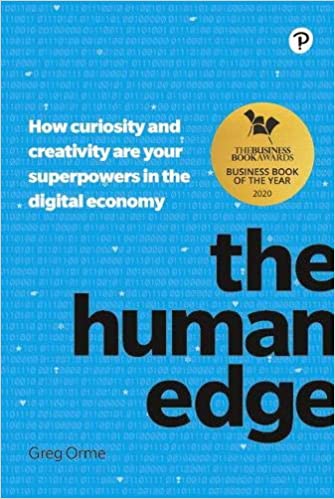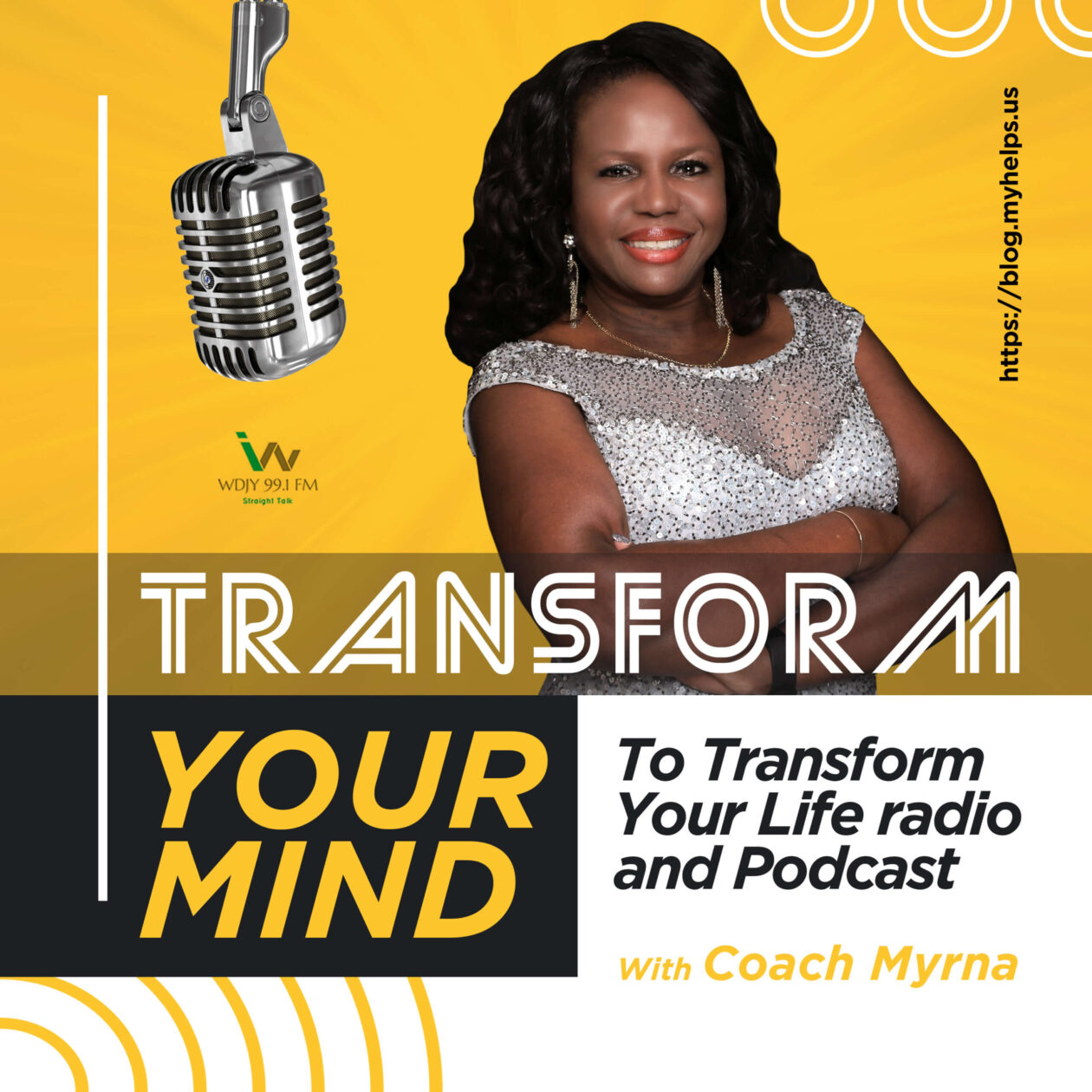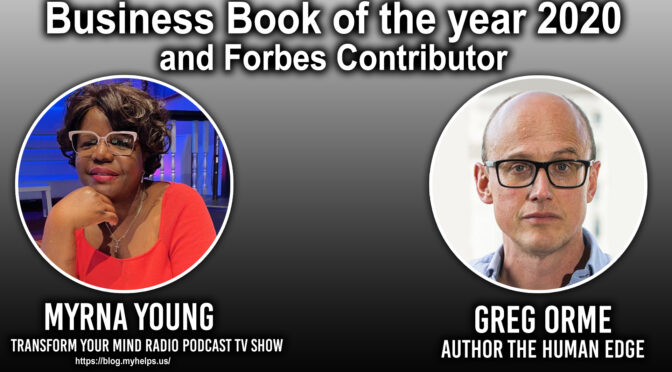Greg Orme, Forbes contributor and Author of the Business book of the Year 2020 “The Human Edge: How curiosity and creativity are your superpowers in the digital economy” shares, leadership, tips on thriving in a world of accelerating change through, creative thinking, curiosity, and consciousness. Greg shares with, leaders, how to remove the threat of, ai, machines taking their jobs by excelling at the 4C’s, consciousness, curiosity, creativity, and collaboration.
I’m delighted to be here Myrna, I think we first came across each other through my one of my Forbes articles.
Myrna – Yes, I was browsing through Linkedin and I came across your article on, gratitude, and when I clicked on it, I noticed that you had a book that was awarded Business book of the year. So, I decided to invite you on the show.
Listen the the Full Interview Here:
Greg – Well isn’t serendipity great? Those algorithms brought us together. I’m coming from you Stratford in the UK and you’re on the west coast in Florida, what an amazing world we live in. I’m very grateful for that.
How Can Leaders develop the Human Edge
Myrna – I am sure it was an honor to have the award of business book of the year. I know your book was specifically designed for, leaders, but we’re all individual, leaders. We have to lead ourselves first before we can lead others.
Why did you write The, Human Edge? Can you give us a little background on your research for this topic and why we need a, human edge, in this digital and computer age?
Greg – That’s a great question, four years or so, I became really interested in one of the big issues of our lifetime. Which is our human relationship with this machine age of, ai.
We all have smartphones that we carry around with us. We never leave them anywhere; this thing called, artificial intelligence, is here to stay.
What skills Leaders need to stay Relevant
After a speech one day on, leadership, one of the female CEO’s came up to me and said Greg , I’m kind of interested in the, organizational change, stuff; but what skills do I need to remain relevant in the next 10 years?
That question led me to start the journey which led to the book, The Human Edge. Even though I’m in the, leadership, business the, Human Edge, is for anyone. It’s a little manual for your own humanity that even if your boss is a bit toxic you can keep under your desk and it’s hopefully the keys to some of your own potential.
Myrna – I remember when the digital age started about the mid 80s, I was working at a bank and everybody was really worried about the ATM machines replacing tellers in the bank; but banks still need tellers 40 years later.

Should we be worried about AI machines taking over our jobs?
Greg – Of course we have been worried about, ai, machines as a race of, humans, for a long long time. I think the first anti-machine story was written in the Greek age about a kind of killer robot, and of course we’ve had the, terminator, and all sorts of machines taking over routine jobs.
We’re worried about these, machines, taking us over and being aggressive and of course somebody wise once said about, technology. We always overestimate the impact of, technology, in the short term; but underestimate it in the long term.
Technology, ai, in particular has long term implications for, leaders. Self-learning algorithms make, ai, smarter and smarter. It’s very difficult for the human brain to really get our heads around, AI, but, leaders, are starting to get ahead of the curve.

My book, the Human Edge, is a hopeful book.
I don’t think most, leaders, should worry about, artificial intelligence, unless your job is simple and can be replaced by a, machine.
Computer scientists call this an algorithmic job i.e routine. You can plan out every keystroke and every process within that job.
An example would be telemarketers, people who are on a script, jobs like those organizing data in a library, even long distance truck drivers; because autonomous driving is really, ai, technology. Another job going to, ai, is customer service, you can never get someone on the phone when you call major corporations anymore. The, ai, machine can have a conversation with callers and handle most calls without the help of a live agent.
Ai , technology will slice away the very routine tasks that we all do, like booking flights or booking a haircut or booking a restaurant. What’s interesting is it leaves a, human, shaped hole for our careers. We’re seeing capabilities and skills that were admired as, leaders, in the early 80s to late 90s are now being admired again.

Human Skills that can protect you against AI
Leaders, need Human skills, like:
- passion,
- gratitude,
- empathy,
- curiosity,
- creativity, are valued.
LinkedIn looked at 20 million job applications in 2020. They noticed that employers are looking for , leaders, with , creative thinking. This is partly to do with, technology, coming into the workplace. Employers need thinking outside the boxes.
Myrna – What is the difference between, creative thinking, and, critical thinking?
Greg- Critical thinking, is being able to analyze a situation and come up with one solution. It has always been admired in the workplace. I think, critical thinking, is one of the top 10 skills employers are looking for in, leaders.

The 4C’s of the Human Edge
Creative thinking, is a way of connecting one’s domain of knowledge over here with another over there and create a whole new innovation or idea. An example of , leaders, with , creative thinking, are Larry Page and Sergey Brin of Google. Google is the creation of two ideas from different worlds that came together.
Myrna – In your book you talk about the 4Cs of the, Human Edge. What are they?
Greg – The first C is, consciousness. Consciousness, is the ability to find meaning in your work.
- The second C is curiosity
- The third C is creativity
- The fourth C is collaboration
Ai machines do not have Consciousness
Myrna – I love the one that you started with, consciousness, because, consciousness, is the big word today and encompasses, awareness, and spirituality. It is a great, human edge, because obviously, ai, doesn’t have, consciousness. How are using it in this context of the, human edge?
Greg – Machines that use, artificial intelligence, don’t ask why? They ask “How do I do this, they ask what do you want to do, but they don’t ask why.”
Understanding why you do things has been a very powerful human trait especially for, leaders. Understanding and being able to articulate in some way your own why is hugely motivational. It releases huge power in yourself as a person. We’ve all met people who have a why and they’ve got shiny eyes and go the extra mile. They’ll work through the night if necessary.
The science of neuroscience data shows that we can actually see the brain light up if you’re living a purposeful life or your best life. The brain releases a chemical called, dopamine, which is the motivation molecule.
The other part of, consciousness, in my model is actually finding the time in your day to observe all the, leaders, and managers in your organization. I literally meet thousands of, leaders, each year through the London business school. If we’re not careful the, ai, enabled algorithms that drive social media, our day is shattered into a thousand pieces and we never actually find time to be curious or creative.
Curiosity gives you a Human Edge
I talk a lot in, The Human Edge, about how you redesign your day to ensure that you have parts of it where you’re not being distracted.
Myrna – True, your why is very important. It’s the only thing that is actually going to get you to your end goal. If you know your why, you will persevere when life knocks you down.
How does, curiosity, give you a, human edge?
Greg – Organizations are asking for people who have built up their, curiosity, in order to drive their own learning. What we’ve seen during the pandemic is many of the disruptors that were moving the world forward at a lightning pace have been accelerated.
One of my former clients, the World Economic Forum, estimate that something like every 18 months or so about 40 percent of what we know becomes obsolete and we need to learn new things. So, the ability to learn rapidly and, curiosity, has become hugely important for any career.
So, the magical thing about, curiosity, is it’s not a fixed trait. You were born with blue eyes and with certain physical factors that you can’t do anything about. Curiosity, is something that you can flex, develop. Like the mercury in a thermometer, it goes up and down depending on what you’re doing every day. It’s like a muscle you can build it up.
Open Ended Questions foster Curiosity
One of the techniques I share for, leaders, in, The Human Edge, to help you build up your, curiosity, is the Five hour rule.
Questions are good for, curiosity; but only a certain type of question. Open ended questions, is preferred to, closed questions. I was a journalist once myself and, closed questions, are useful for checking information or sometimes you want a yes or no answer, but for, curiosity, you need, open ended questions.
Open ended questions, are really powerful for, leaders. Questions like:
- What if we tried it this way?
- Have you seen what those guys are doing over there?
- Do you think we could do that too?
Open ended questions, not only to inspire your own, curiosity, but it sparks, curiosity, it in the people around you.
Ai machines can’t come up with Creativity
Myrna – So now lets talk about, creativity. I know that it is like a top, human edge, because employers want, leaders, who think outside of the box. It is definitely a way to differentiate yourself from, ai.
Greg – Organizations need systems, they also need bureaucracy to run them because they’re very large entities; but what most of the, leaders, that I’m working with across multiple industries are trying to do is trying to find the space where there are fewer rules.
They encourage, leaders, to come with their ideas and, creativity. You cannot really be creative unless you’re first insatiably curious. Curiosity, is about asking questions, you’re interrogating the world and challenging the status quo, but you’re also importantly gathering cognitive fuel for your brain.
Creativity is the characteristic of the World’s Wealthiest
This is why if you look at the life stories of highly successful people, they all talk about, curiosity, and their ability to learn as a foundational skill. Oprah Winfrey talked about, curiosity, and books getting her where she is today. Jeff Bezos was a was a curious learner.
Elon Musk is I think currently the world’s richest man. He has as disrupted multiple industries; but it’s important to realize that even Elon Musk talented he is. When he was as a young boy in South Africa before he came to Canada, he was not the finished product. Elon Musk built his ability to think differently and his, curiosity, through a lifelong of learning. Spacex which is one of his more interesting ventures to disrupt commercial travel to the moon and beyond, got that idea, because he was so fascinated in rocketry and space travel.
How is Collaboration a Human Edge Characteristic
Myrna – Our last C is, collaboration. Collaboration, is a, human edge, of being able to bring talents together to create something bigger.
Collaboration, is what you need if you are creative, because you need to come together with other, humans, to get your ideas off the ground.
Greg – You’re correct Myrna. Collaboration, is a very human trait to be able to gather similar or maybe opposite characteristics and bring them together to create something big.
We’ve talked about, consciousness, that gives you the energy and the motivation and the time because of focus. Then we touched on, curiosity, which gives you the fuel.
Collaboration, works when you have a large network of, collaborators. These people are more, innovative, because they’ve got these connections and people can help them with their ideas. So, how do you ensure that your network is big enough and varied enough to help you? Then I talk about experimentation, how you can take these ideas and test them very quickly get some data on it and feedback.
Business Book of the Year 2020 – The Human Edge
Myrna – Your book was awarded Business Book of the Year, because you were talking about, leadership, skills for people and preventing, leaders, from being obsolete by the emergence of ,ai. You mentioned in your bio that you were redundant in 2008 and that’s basically what took you on this journey to discover the, human edge. If we learn these skills can they insulates us from being redundant?
Greg – Absolutely, my story like most people’s, did not work out the way that I had planned. It’s the parts where you go wrong in the creative process, where you can learn the most and move forward.
Myrna – Tell our readers how they can get a copy of your book. You also speak all around the world so tell us how organizations can contact you if they’re interested in you speaking at one of their executive functions.
Greg – Thanks for the opportunity. If people want to check out my work it’d be a great idea to just go to my website www.gregorme.com there they can see some videos of me speaking and they can actually get in touch with me through the get in touch function on the website.
Conclusion
There’s one other thing, I’ve just launched something that’s really taking off. A newsletter called the Curious Human. This is a complimentary email sent straight to your inbox once a month.
This is the kind of byproduct you were talking about on your podcast. A byproduct of a business writer’s life, because I’m always writing my Forbes pieces or my new books or I have got a great podcast I’ve heard or an interesting book I’ve read or an article or a video. What I do each month is I share that in a two-minute kind of bulletin to the people who have signed up for my emails.
You can sign up on my website, at the bottom of every page there’s a space where you can sign up for the newsletter. If they’d would like to follow me on social media, I think the best place is LinkedIn, that is where I’m most active.
I’d be delighted to connect with people. Also, on Forbes I’ve got my own regular column. If you put Greg Orme Forbes in the search, I will come up. I’m writing regularly on Forbes.
The book “The Human Edge: How curiosity and creativity are your superpowers in the digital economy” is on Amazon and anywhere books are sold.
Follow Myrna Young and this podcast:
Follow the Transform Your Mind Podcast on Instagram @https://www.instagram.com/myrnamyoung/
on Facebook @https://www.facebook.com/Transform-Your-Mind-356442618235798/
on Twitter @https://twitter.com/myrna_young1
Join my Private Life Coach Facebook Group https://www.facebook.com/groups/193005424200128/
Subscribe to this podcast on iTunes https://podcasts.apple.com/us/podcast/transform-your-mind-coach/id1144973094?mt=2

